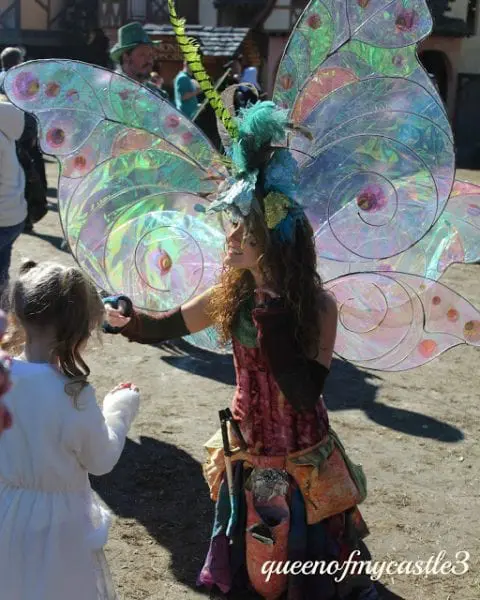When Gaming Became an Important Part of the Entertainment World

Gambling has long been an integral part of human culture, offering an enticing blend of chance, risk, and reward. At its core, gambling involves placing bets or wagers on uncertain outcomes with the hope of winning something of value. This age-old activity traces its roots back to ancient civilizations, where dice games, card games, and various forms of betting were commonplace. Over the centuries, gambling has evolved, adapting to changing societal norms and technological advancements.
Throughout history, gambling has not only served as a pastime but has also played a significant role in shaping economies and societies. From the opulent casinos of Las Vegas to the backroom card tables of old Western saloons, the allure of gambling has captured the imagination of people worldwide. Moreover, gambling has intertwined itself with various forms of entertainment, from literature to film, music, and even sports.
This article explores gambling’s fascinating journey from a simple activity of chance to a vibrant and integral part of the entertainment world. We delve into its definition, examining its various forms and manifestations, and provide a brief overview of its rich history. Furthermore, we explore the intriguing intersection of gambling and entertainment, highlighting how these two realms have merged to create a captivating cultural phenomenon.
Historical Context
In the labyrinth of human history, gambling emerges as an integral part of ancient civilizations. From the clay tablets of Mesopotamia to the bamboo slips of China, early societies engaged in games of chance, seeking fortune amidst uncertainty. The evolution of gambling mirrors the diverse tapestry of human culture, with each civilization infusing its own customs and beliefs into the practice. The Greeks celebrated the thrill of competition in the Olympic Games, while the Romans reveled in chariot races and gladiatorial combat. As empires rose and fell, gambling persisted, adapting to the ever-changing landscape of human existence. It’s noteworthy to mention that even in those ancient times, games akin to Lucky Dama Muerta Demo were played, reflecting the timeless appeal of chance and risk-taking.
However, it was with the emergence of gambling as a form of entertainment that its true transformative power became apparent. From the extravagant courts of medieval Europe to the bustling streets of ancient Rome, gambling transcended its utilitarian origins, evolving into a spectacle that captivated hearts and minds. The Renaissance era witnessed the birth of casinos and lavish gambling houses, where nobles and commoners alike sought respite from the mundane realities of life. With the advent of modernity, gambling found new avenues of expression, from the neon-lit casinos of Las Vegas to the virtual realms of online gaming.
The intersection of gambling and entertainment marks a pivotal moment in human history, where leisure and commerce intertwine in a delicate dance. Today, as we navigate the complexities of a digital age, the legacy of gambling a part of the entertainment world endures, captivating audiences with its intrigue. Yet, amidst the glitz and glamour, questions linger about the social and ethical implications of this timeless pursuit. As we peer into the past, the story of when gambling became an important part of the entertainment world serves as a poignant reminder of the enduring power of human fascination and the ever-present allure of chance.
Gambling in Entertainment
Exploration of the complex relationship between gambling and entertainment unveils a captivating journey through the diverse areas of human creativity. In the area of literature and storytelling, gambling emerges as a potent narrative device, weaving tales of risk, fortune, and despair. From the ancient epics of Gilgamesh to the modern thrillers of Agatha Christie, gambling serves as a metaphor for life’s uncertainties, drawing readers into worlds where the roll of the dice determines destinies, and the shuffle of cards reveals hidden truths.
Transitioning to the silver screen, gambling assumes a cinematic appeal, with filmmakers employing its imagery to evoke tension, excitement, and intrigue. From the smoky backrooms of film noir classics to the dazzling casinos of modern blockbusters, the portrayal of gambling in movies captivates audiences with its blend of glamour and danger. Whether it’s the high-stakes poker games of “Rounders” or the high-octane races of “Ocean’s Eleven”, films transport viewers into a world where the thrill of the bet reigns supreme and fortunes hang in the balance.
Moreover, the fusion of gambling with music and performing arts adds yet another layer of depth to its cultural significance. Musicians draw inspiration from the rhythms of the casino floor, crafting songs that capture the essence of risk and reward. In swinging jazz tunes of Louis Armstrong and soulful ballads of Frank Sinatra music celebrates the highs and lows of the gambling experience, resonating with listeners on a visceral level.
On the stage, gambling finds expression through captivating performances and choreography that transport audiences into the heart of the action. Whether it’s the electrifying dance numbers of “Guys and Dolls” or the dramatic showdowns of “The Gambler”, theater productions immerse viewers in a world where every roll of the dice and every spin of the wheel holds the promise of adventure and excitement. Through literature, film, music, and performing arts, gambling emerges as more than just a pastime – it becomes a cultural phenomenon that reflects the complexities of the human experience, inviting audiences to explore the thrill of the unknown and the allure of the gamble.
Popularity and Impact
As the world succumbed to the charm of chance, the metamorphosis of gambling into a cornerstone of entertainment heralded an era of transformation and opulence. The ascent of casinos and gambling destinations became emblematic of this paradigm shift, turning quiet locales into bustling centers of excitement and extravagance. From the resplendent glow of Las Vegas to the timeless elegance of Monte Carlo, these destinations evolved into beacons of thrill, offering a heady mix of entertainment, luxury, and possibility.
In the below table, you can track the impact that gambling had and has on the world around us:
| Key Information | Details |
| Rise of Casinos | In the wake of evolving attitudes towards gambling, casinos emerged as veritable temples of entertainment and leisure. Destinations like Macau and Atlantic City metamorphosed into symbols of grandeur, boasting sprawling resorts and cutting-edge gaming facilities that magnetized visitors from every corner of the globe. |
| Influence on Tourism | The gravitational pull of gambling destinations on global tourism is undeniable, drawing millions of visitors who seek not just the thrill of the games but also a myriad of entertainment options and luxurious amenities. From international poker championships to Broadway-caliber shows, these destinations cater to diverse tastes, ensuring an unforgettable experience for every guest. |
| Influence on the Hospitality Industry | Gambling’s ripple effect extends far beyond the confines of the casino floor, molding the hospitality industry into a realm of unparalleled extravagance. From sumptuous accommodations and gastronomic delights to high-profile entertainment events, the hospitality sector now revolves around the discerning preferences of gambling aficionados, solidifying the intertwining of luxury and entertainment. |
In retrospect, the rise of casinos and gambling destinations has redefined the contours of entertainment and etched an indelible mark on the tourism and hospitality industries, shaping a new narrative of leisure and luxury.
Technological Advancements
Following the evolution of the entertainment dimension, gambling seized upon technological advancements to redefine the gaming experience. The inception of online gaming platforms revolutionized accessibility, granting players the ability to engage in their favorite games from virtually anywhere with an internet connection. These platforms offer a plethora of options, spanning from traditional casino classics to innovative virtual renditions, catering to a diverse array of preferences.
Furthermore, the integration of virtual reality and augmented reality technologies has catapulted gambling entertainment into a world of unparalleled immersion and excitement. VR casinos transport players into richly detailed virtual worlds, where they can interact with lifelike environments and other players, fostering a sense of presence and engagement. On the other hand, AR applications overlay digital elements onto the physical world, injecting an element of fantasy and interactivity into real-life surroundings.
The impact of these technological strides on gambling’s accessibility and popularity cannot be overstated. Online platforms have democratized gambling, erasing geographical barriers and offering 24/7 access to gaming thrills. Additionally, the introduction of VR and AR has captivated audiences, attracting both seasoned players and newcomers alike with their immersive experiences. Indeed, as technology continues to advance, the fusion of traditional gambling with cutting-edge innovations is poised to redefine the very fabric of entertainment, ensuring that gambling remains a vibrant and integral component of the entertainment world.
Societal Perceptions and Issues
Despite its integration into the entertainment world, gambling still grapples with societal perceptions and various issues. One prevalent concern is the stigma surrounding gambling addiction, which affects individuals and families alike. The addictive nature of gambling can lead to financial ruin, strained relationships, and mental health struggles, perpetuating negative stereotypes and misconceptions.
Furthermore, the gambling entertainment industry faces ongoing regulation and legal challenges. Governments worldwide seek to balance gambling’s economic benefits with the need to protect vulnerable populations from harm. This dynamic regulatory landscape poses challenges for both industry stakeholders and policymakers as they navigate complex legal frameworks and societal expectations.
Ethical considerations also loom large in the gambling industry, prompting calls for responsible gambling initiatives. From promoting awareness of problem gambling to implementing self-exclusion programs and age verification measures, stakeholders are taking steps to mitigate the negative impacts of gambling while preserving its entertainment value. By fostering a culture of responsible gambling, the industry aims to address societal concerns and ensure a safe and enjoyable experience for all participants.
Future Trends
Looking ahead, the future of gambling as a cornerstone of entertainment is poised for exciting developments and transformations. Potential innovations in gambling entertainment are on the horizon, driven by advancements in technology and changing consumer preferences. They promise to enhance player engagement and create new avenues for social interaction within the gambling community.
When forecasting the future of gambling as part of the entertainment world, one can anticipate a continued expansion and diversification of the industry. Technological advancements driving innovation and adjusting societal attitudes towards gambling will grow and evolve the industry. However, stakeholders must remain vigilant about potential risks such as problem gambling and regulatory challenges, ensuring that gambling remains a responsible form of entertainment.









